Forbes India 2020 Rewind: The books we loved in a bad year
In a year that kept us at home, the Forbes India team found, or made, more time to read. Here's a compilation of our favourite books of the year


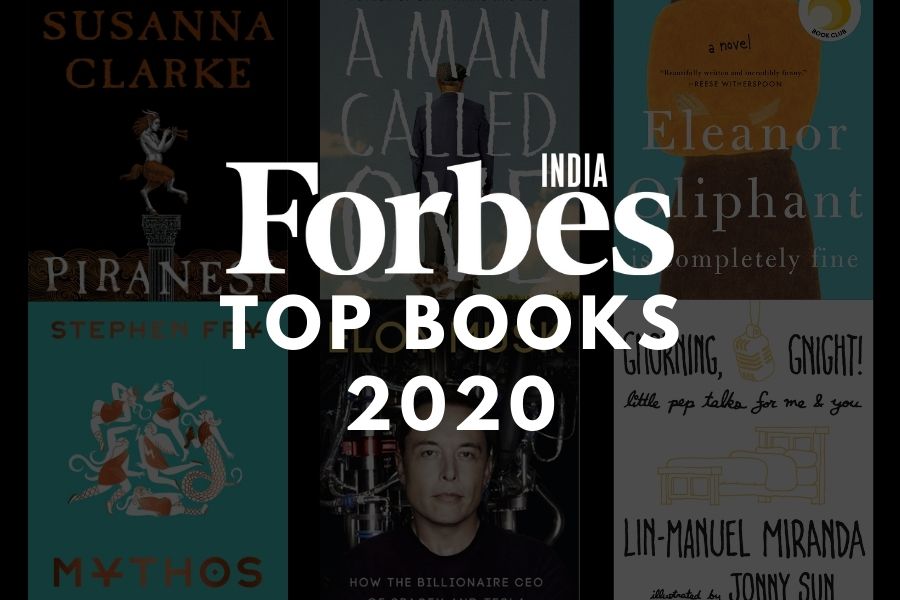
With most of us working from home for close to 10 months, we have finally taken some time to read books that were on our list for a long time or we, admittedly, finally finished those books that we had started reading a while back. In 2020, the Forbes India team has read books across genres, from Gail Honeyman"s Eleanor Oliphant is Completely Fine to Ramachandra Guha"s India After Gandhi and It"s All In Your Head, M by Manjiri Indurkar to Piranesi by Susanna Clarke. 2020 is nearly over (phew!), but you might consider adding this to your reading list for 2021:
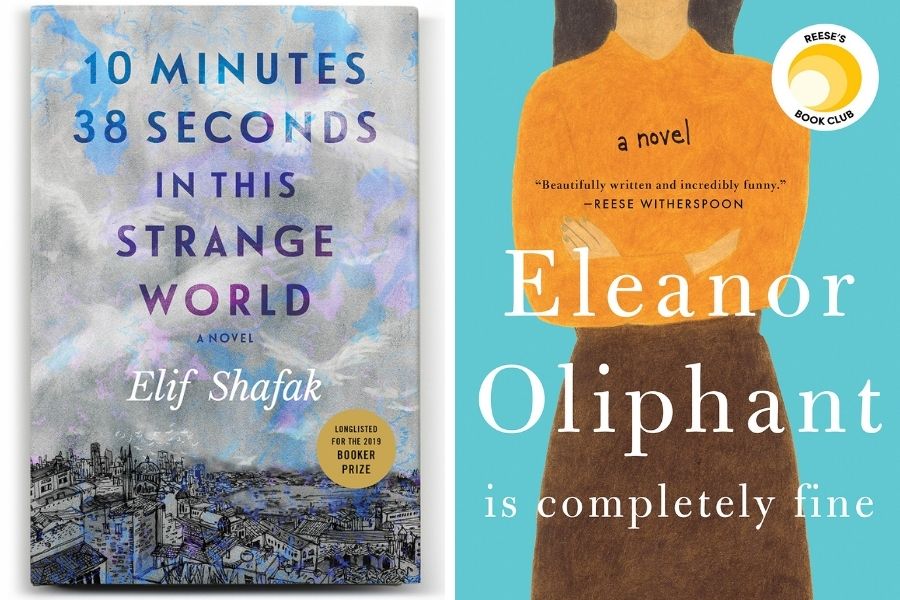
Ruchika Shah’s picks
10 minutes 38 seconds in this Strange World by Elif Shafak
Are you really dead when you die? Elif Shafak’s protagonist Tequila Leila is dead, but her brain takes 10 minutes, 38 seconds to shut down completely. In that time, building upon the adage, ‘your life flashes before your eyes as you die’, Tequila Leila tells us the story of her estranged family, the woman she could never call mother, her best friends in the world—The Five—and the despair of lying dead in a dumpster yet to be discovered.
Favourite line: They respected him the way cruel and powerful people have been respected since the dawn of time—with abundant fear, and not a speck of love.
Eleanor Oliphant is Completely Fine by Gail Honeyman
As someone who lives with a cocktail of mental health illnesses, Honeyman’s Eleanor Oliphant who always says she’s ‘completely fine’, really resonated with me. A wonderful tale that touches upon the themes of trauma, loneliness, sadness but also friendship, love, kindness, and acceptance, I hope with every page you turn, this book makes you more empathetic—we’ll need more of that in 2021.
Favourite line: I went into the little white room inside my head, the one that’s the colour of clouds. It smells of cotton and baby rabbits.
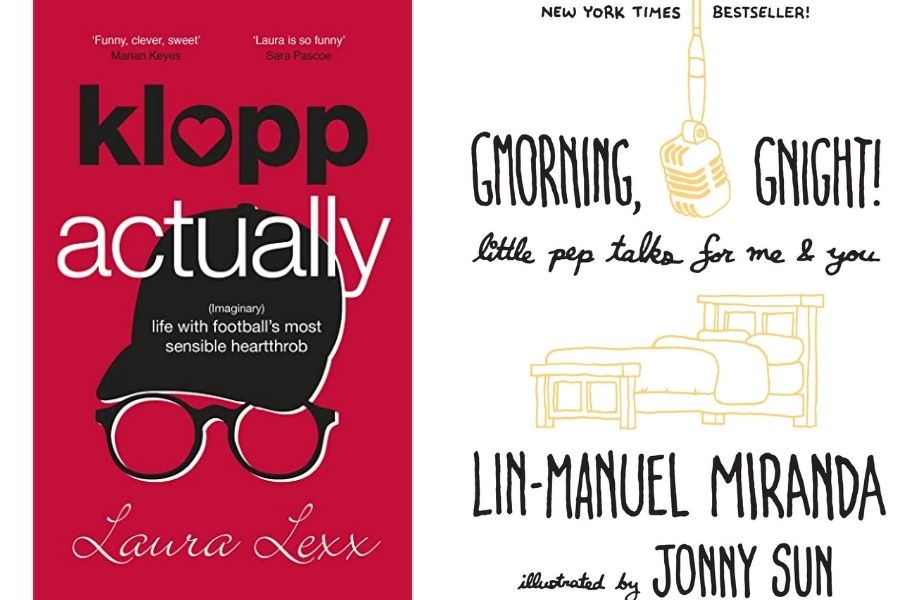
Rucha Sharma’s picks
"Klopp, Actually" by Laura Lexx
British Comedian Laura Lexx was stuck in a hotel room in Glasgow when she tweeted about what would it be like to be married to FC Liverpool manager Jurgen Klopp. It became a Twitter sensation overnight and a book right after that. He is a sensible man who guided The Reds to a Champions League victory after two decades, and she is a millennial wife who needs Klopp to keep her grounded. Lexx"s story broke the barriers of social media and fanfiction to become a heartwarming yet rib-tickling read in the midst of the pandemic.
Gmorning, Gnight!: Little Pep Talks for Me & You by Lin-Manuel Miranda and Jonny Sun
An encouraging whisper can carry us through the turmoils of a lifetime. It leaves a lasting impression if it comes in the voice of Lin-Manuel Miranda. The multi-hyphenate artist collaborated with brilliant illustrator Jonny Sun to compile his daily tweets into an uplifting book. They bookend your day with earnest words.
"Gmorning.
You"ve had too many apps open for too long.
Close your eyes.
Check all systems.
Soft reboot."
"Gnight.
Don"t wait until low power mode.
Close your eyes.
Close all unnecessary apps.
Recharge."
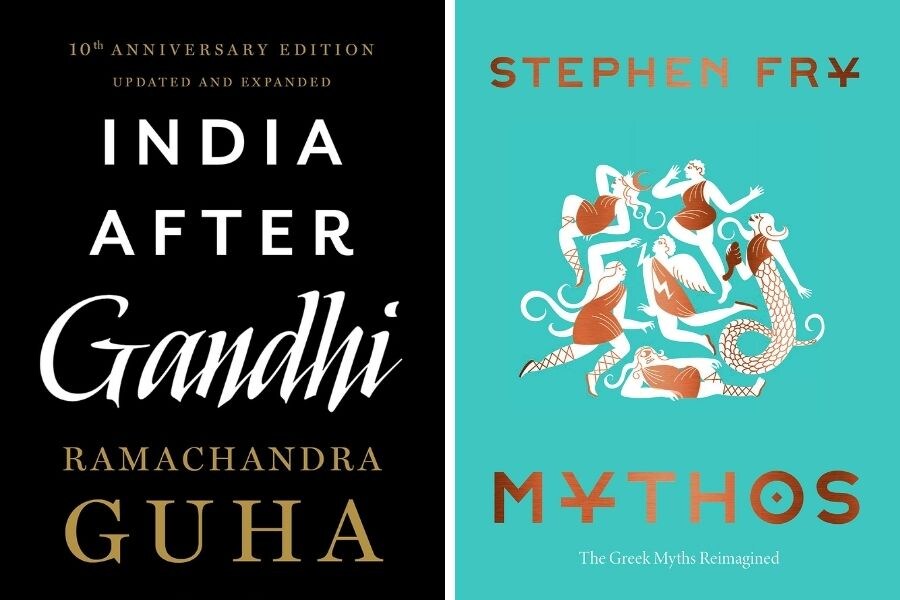
Aishwarya NK’s picks
India After Gandhi by Ramachandra Guha
Reading ‘India After Gandhi’ made me realise how little I knew about my own country. Guha’s manner of making Indian history sound more interesting than any other book I’ve read on the subject in my entire school life, is why I couldn"t get my hands off it (to be fair, e-book) until the end. As the name suggests, this book takes you through the impact of and the changes that followed Mahatma Gandhi"s demise. That being said, there is very little about Gandhi in the book, as Guha attempts to give a more holistic insight to the India that was, that resulted in the India that is.
Mythos by Stephen Fry
For someone who has always been interested in mythology, be it Indian, Greek or Norse, I simply could not miss the opportunity of reading Stephen Fry"s work. Fry has authored multiple books about mythology, mainly Greek. Unlike some of his other books, in which he may talk about one particular entity or incident, Mythos is a brief overview of the entire world of Greek Mythology in a bite-size format. He adds elements of humour by cleverly juxtaposing mythological occurrences with modern day scenarios and, somehow, makes Gods seem more human. It doesn"t matter how much you may already know about Greek mythology, Fry flips the stories on its heads and makes the reader witness it from a completely fresh perspective.
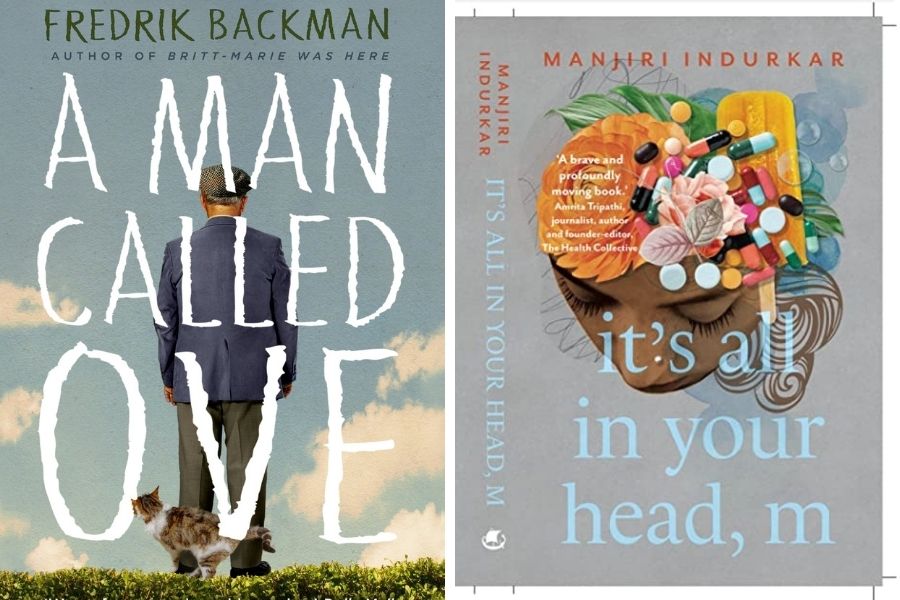
Divya Shekhar’s picks
A Man Called Ove by Fredrik Backman
The Spanish book was translated into English by Henning Koch in 2013. This is a story of a grumpy old man called Ove, who leads a solitary life in a new fangled world he no longer understands. He spends his days feeling perplexed, exasperated, enraged and resigned by the "utter uselessness" of people around him, yet is kind and large-hearted enough to help them every single time. Ove does not like change, you see, but has no option but to accept what comes his way. This book is emotionally moving in so many ways. Backman"s writing, in its sheer simplicity, has the power to bring out a sense of positivity in the world, despite the narrative and the circumstances being one of tragedy and helplessness. He uses humour to mask the horror, leaving you with a feeling that no matter how hopeless things might seem, there"ll always be people around to share your pain, the world is kind and there"s always a way out.
It"s All In Your Head, M by Manjiri Indurkar
The writer from Jabalpur, through moving prose and poetry, talks about trauma and abuse, anxiety that manifests itself during the daily course of life, the signs and distress signals our body gives, and how to make peace with ourselves and our journey. The book, released in October, is deeply personal—and triggering in many parts—but tells us in all honesty that we are not alone in our fight with fear, self-doubt, physical and mental health stresses. If anything, our resilience helps us love and accept ourselves, forge bonds with a close-knit group of people who are always there for us, and be confident enough to realise our potential and own our truth.
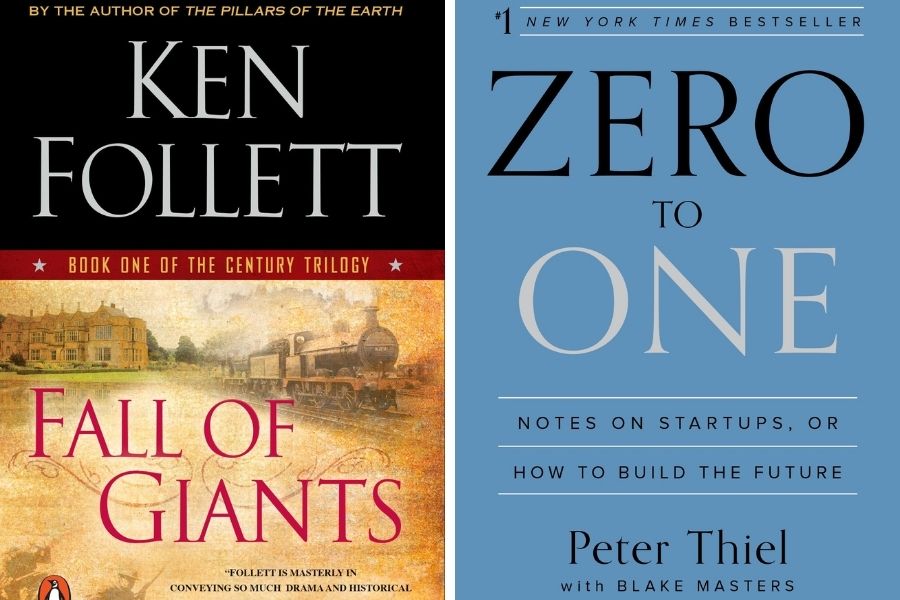
Harichandan Arakali’s picks
The Century Trilogy by Ken Follett
This book tracks some of the most important events of the 20th century, starting in Europe—from the developments leading up to the first world war and through the second, the nuclear bomb, the cold war and America’s rise as a superpower. The trilogy comprises Fall of Giants (published 2010), Winter of the World (2012) and Edge of Eternity (2014). The story is told through the eyes and experiences of five fictional families and lends itself to both the history buff, and the lover of romantic fiction—for the three books are populated with rich characters with their intense love lives, set in the historical backdrop of the century’s world-changing events.
Zero to One by Blake Masters and Peter Thiel
Published in 2014, came out of the detailed notes made by Blake Masters, a Stanford University law student in 2012, who was taking a class by Thiel, a reputed Silicon Valley entrepreneur and investor. The notes, made in 2012, themselves became very popular. In the authors’ own words, the book is both about “notes on startups” and “how to build the future”. The second description is about how to build something that no one has built yet. That is what takes the world through the step jump of going from nothing to something—or from zero to one.
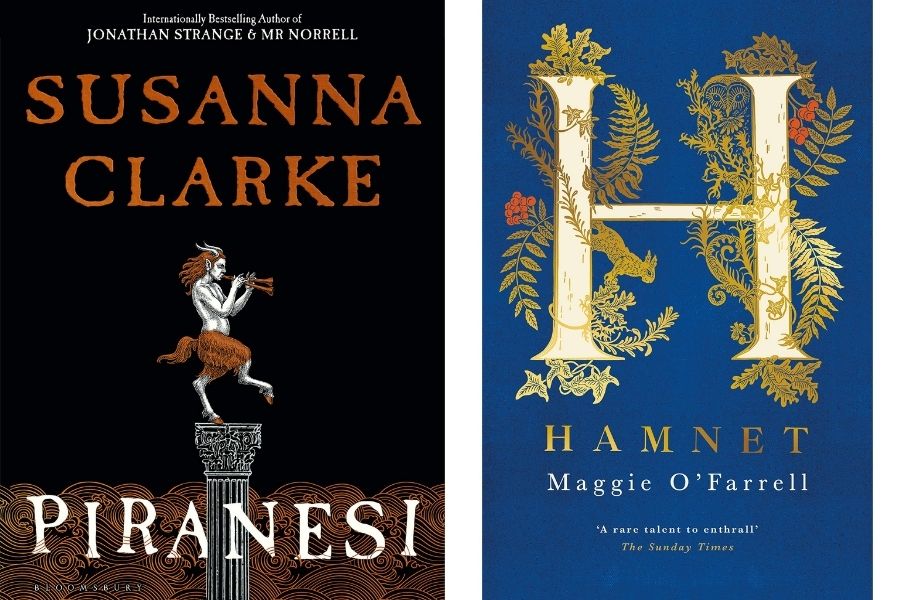
Monica Bathija’s picks:
Hamnet by Maggie O’Farrell
A woman lives on the edge of a forest, a gifted herbalist who has people lining up at her door for remedies and cures. And yet when the plague strikes, she is unable to save her own 11-year-old son. Her husband, a playwright, unnamed, is meanwhile writing plays and coping with the grief in his own way. The combination of O’Farrell and Shakespeare were an inevitable draw, but in the year of the pandemic, how the plague originated and spread, ultimately making its way to Stratford-Upon-Avon, was particularly pertinent.
Piranesi by Susanna Clarke
Susanna Clarke spent 10 years writing Jonathan Strange and Mr Norrell, and I spent a month reading it, submerged in the world she had created. Sixteen years later, another world, another submersion. A literal one. Piranesi lives in The House, full of innumerable halls, marking the tides of the ocean that flows in the lower floors, surviving on fish and using dried seaweed for heat. He’s alone, almost a prisoner, yet strangely not bothered by any of it. “As a scientist and an explorer I have a duty to bear witness to the Splendours of the World,” he says. “The Beautiful Orderliness of the House is what gives us Life.” Ring a bell in the year of being homebound?
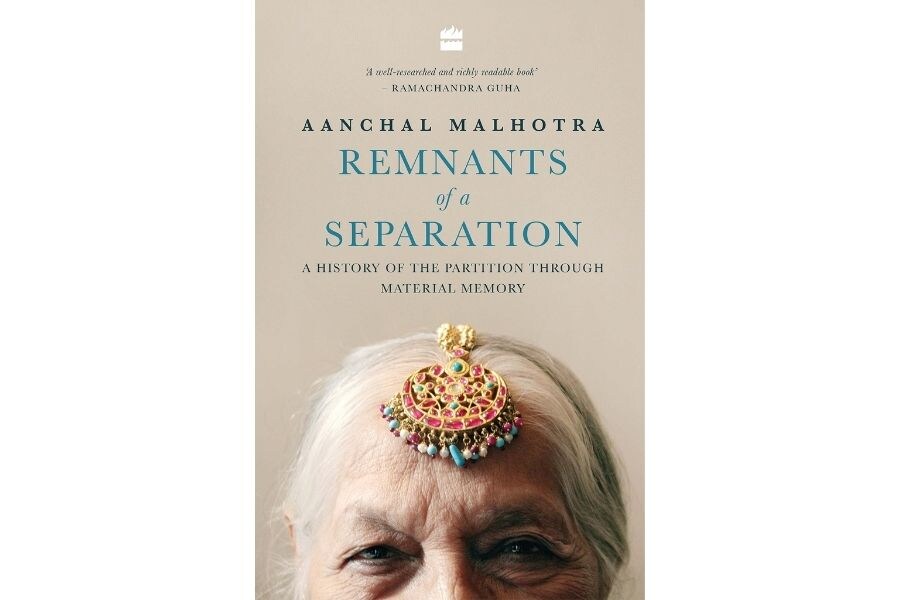
Anubhuti Matta’s pick:
Remants of a Separation: A History of the Partition Through Material Memory by Aanchal Malhotra
Growing up, my grandparents recounted their experiences with the partition and how they fell in love at a refugee camp. But mostly, their stories had a tinge of trauma and rightfully so. After reading Aanchal Malhotra’s Remants of a Separation, I was also inspired to ask them if they could dig up something that they carried with them to India from Dera Ismail Khan. My grandmother earlier claimed she had no memory of it, but on prodding, she said she had a necklace and a shawl her mother had made her. After opening seven trunks, we saw the two things, still intact, that not only made her relive her days in a house that no longer exists, but also made her cry like we had never seen before. Although close to her heart, she decided to part with them and handed them down to me and it became a part of my wedding trousseau. This made me miss her a little less at my wedding which she couldn’t attend, thanks to Covid-19.
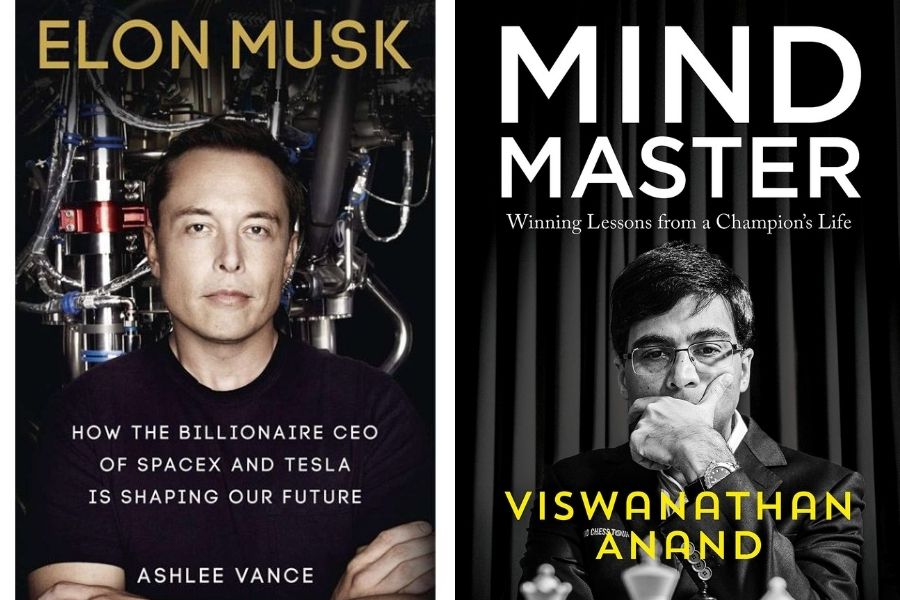
Brian Carvalho’s picks:
Elon Musk: How the Billionaire CEO of SpaceX and Tesla is Shaping our Future, by Ashley Vance
Tesla’s amazing run in 2020 had me reaching out for this 2015 biography that was gathering dust on the bookshelf. Musk’s allure for me, though, is not that he’s now the second most richest man on the planet (and probably soon No 1) rather, it is his obsessive zeal for genuine innovation at a time when internet businesses and apps are considered the Holy Grail of innovation that propels him into another league he is after all the man who put all the money he raked in by selling his stakes in Zip2 and PayPal to change the way cars are made and sold as well as the fuel that drives these cars. And he’s also the man with that crazy dream of becoming the “Southwest Airlines of Space.” With every passing day, that dream— which includes putting humans on Mars—appears less crazy.
Mind Master: Winning Lessons from a Champion’s Life, Viswanathan Anand with Susan Ninan
The lessons from a chess World No 1 and five-time World Championship title winner are relevant even if you’re not a pawn-pusher. They’re cerebral, but also easy-to-digest nuggets, often laced with emotions of the highs and lows that come with winning and losing. Turn to any page, and you are likely to find learning that you could choose to apply. Example: “The mind only recovers emotionally when it can replace an old memory a new, more pleasant one.” Or: “After a bad game I tend to find myself in the gym, running. When I’m on the treadmill, I feel the anger like a raw nerve and the first thing that flashes in my mind when I get off is that the loss is real, still fresh and hurting, and the memory of it hasn’t gone away. But I’m sweating, perhaps slightly exhausted, so I go for a shower, eat and then doze off, and the next morning I always wake up feeling better.” Kudos to co-author Susan Ninan for the engaging and anecdote-laden style of writing.
First Published: Dec 29, 2020, 16:06
Subscribe Now